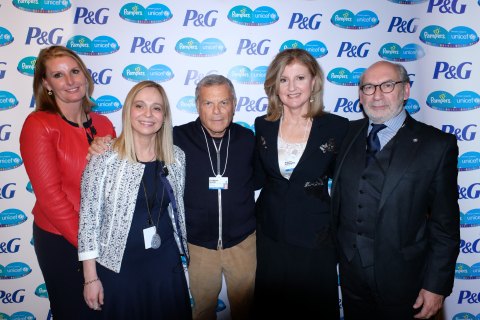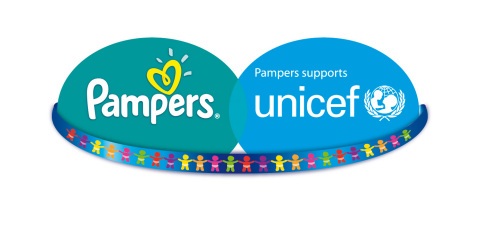DAVOS, Switzerland--(BUSINESS WIRE)--At this year’s World Economic Forum (WEF), Pampers® marks their 11 year partnership with UNICEF to protect mothers and their babies from maternal and newborn tetanus (MNT), a deadly disease, by sharing the results of a new health economic study*.
The study, conducted in collaboration with UNICEF, reveals that by 2016 a total of $1 billion would have been contributed to the economy through labor productivity (average household income and services by mother) due to a reduction in mothers’ deaths from Maternal Tetanus, thanks to the overall MNTE initiative and support of the Pampers UNICEF partnership.
The study also demonstrates the incredible return on investing in the health of a mother and their newborn, as with every $1 invested from overall MNTE funding, $7 would have been contributed to household economies through labor productivity. Ultimately, by investing in initiatives that help to save babies lives, an investment in their future has also been made.
Since 2006, Pampers and UNICEF have been working together helping to protect 100 million moms and their babies from MNT. This year they celebrate the elimination of MNT in 191 countries. However there are still 192 countries left where MNT remains a threat, it is vital that the work continues not just to save lives but for the future growth of the economy.
The study results will be unveiled at a panel discussion, moderated by Arianna Huffington, Founder of The Huffington Post, and Founder & CEO of Thrive Global.
“This health economic research further reinforces the importance of the Pampers-UNICEF partnership and the positive economic impact of eliminating MNT. As we celebrate our 11th year, it is extraordinary to think that so many lives can be protected through the relatively minor costs of vaccinating a mother and child - and how this will leave such a lasting legacy,” said Sirma Umur, Vice President P&G Baby Care Europe. “We are proud of what we have achieved together with UNICEF, and remain dedicated in our commitment to help protect the world’s babies against this deadly disease.”
“By working with Pampers we have raised much-needed funds and created awareness about maternal newborn tetanus – both of which are crucial to defeating the disease,” said Gérard Bocquenet, Director of Private Fundraising and Partnerships, UNICEF. “We reached an important milestone when MNT was eliminated in 19 countries; now we are focused on accelerating elimination in the 19 remaining countries where the key challenge remains universal access to life saving interventions, including maternal and newborn tetanus vaccines.”
The panel discussion will be hosted by Sir Martin Sorrell, Chief Executive Officer of WPP, “Today we recognise that no government, business or NGO can solve the world’s problems on its own – collaboration and innovative approaches are required to effect change. Pampers and UNICEF working together to end MNT is a shining example of the power of public-private partnerships to achieve meaningful and lasting impact. We are honoured to have been associated with the 1 pack = 1 vaccine campaign for the past five years.”
1 Burkina Faso, Cambodia, Cameroon, Cote d’Ivoire, Gabon, Ghana, Guinea Bissau, Indonesia, Lao PDR, Liberia, Madagascar, Mauritania, Myanmar, Niger, Senegal, Tanzania, Timor Leste, Sierra Leone and Uganda
2 Afghanistan, Angola, CAR, Chad, DRC, Ethiopia, Equatorial Guinea, Guinea Conakry, Haiti, Kenya, Mali, Nigeria, Pakistan, Philippines, Papua New Guinea, Republic of the Sudan, Republic of South Sudan, Somalia and Yemen
*The economic study is based on model simulation to estimate economic impacts of the MNTE initiative in high risk areas of 38 countries supported by Pampers-UNICEF partnership from 2006 to 2016. Data inputs were derived from published literature and the UNICEF programme data.




